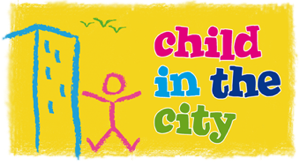Parallel session: Competing needs in public space (16:00-17:30)
Presentation 1: FAIR-PLAY TEAM in Vienna – offers low threshold social work in public space
Presented by: Antonia Dusa Wernig and Nicole Janß
Abstract: This mobile, community-oriented activity is being carried out by non-profit organisations in the field of youth work since 2010. FAIR-PLAY-TEAM is nominated by the district councils and under supervisory control by the municipal department for youth work – MA 13. Similar to youth-work, FAIR-PLAY-TEAMs also work in public space although they offer activities for people of all ages, children, teens as well as adults. FAIR-PLAY-TEAMs are on-the-spot and walk through their assigned region regularly. Therefore they are experts on public space. Their form of low-threshold contact and building relationships is the special quality of FAIR-PLAY-TEAMs. The main goal of the FAIR-PLAY-TEAMs is to improve social climate for all users of public space, always considering the personal conditions of life. FAIR-PLAY-TEAMs take effect on the overall system of local networks. As communicators, they enable a balance of interests and try to activate involved people of all ages to find joint solutions and therefore making urban social processes tangible for them. The offers of the FAIR-PLAY-TEAMs are aligned to promote and preserve social qualities of public spaces, which are dependent on accessibility, design and infrastructure as well as appropriation and negotiation processes. Children and adolescents particularly have the right to be supported in claiming parks, public spaces and niches. FAIR-PLAY-TEAMs support any participation in shaping the way citizens live together, thereby involving the social environment and all people who are concerned with utilisation of public space. FAIR-PLAY-TEAMs strengthen the capacity to act and they encourage processes of appropriation, negotiation, and formation. FAIR-PLAY-TEAMs assist the urban population by linking them to political players and empowering them to claim structural conditions that enable participation.


Presentation 2: The impact of and challenges in the development of child-friendly cities through child participation: Focusing on the practice of Kochi City, Japan
Presented by: Toko Uchida
Abstract: This presentation aims to report on and analyze the impact of child participation on the development of child-friendly cities and challenges therein, focusing on the practice of Kochi City, Japan. In Japan, initiatives to develop child-friendly cities have been promoted mainly at the local level to protect children’s rights after the ratification of UN Convention on the Rights of the Child in 1994. For instance, an increasing number of municipalities have developed legal frameworks, such as local ordinances on children’s rights, to incorporate child participation in community development in order to ensure sustainability of such efforts. Kawasaki City became the pioneer in this field in 2001, followed by 44 other municipalities so far (as of October 2016). These municipalities have been more successful in ensuring child participation in urban planning and community development, compared to other municipalities that have not adopted such legal frameworks yet. Kochi City, with the population of some 330,000, established the “Kochi Child Fund” in 2012, which provides grants for the activities proposed by children to improve their communities; the selection itself is conducted by children. The activities initiated by children with the financial support of the Fund have led to the activation of communities. In this presentation, I will report on the following points, focusing on the practice of Kochi City, Japan. 1. Overview of the current situation of children in Japan 2. Overview of the good practices of child-friendly cities in Japan 3. Summary of the practice of Kochi City, Japan 4. The impact of and challenges in the development of child-friendly cities through child participation.

Presentation 3: Promoting children’s voice in livability issues in villages: inspiring examples from a Dutch-German project
Presented by: Hilde Wierda-Boer
Abstract: A considerable amount of children lives in rural areas instead of cities. Rural areas have challenges of their own. In most villages, the population is declining. Consequently, shops, schools, and public transport disappear. What can be done to preserve villages as child-friendly living environments? And how could children’s voices be heard in this issue? Six Dutch and six German villages explore this issue together with researchers from HAN University of Applied Sciences (NL) and Hochschule Rhein-Waal (D). Together we are the ‘Family Community’, part of KRAKE (Strong Villages), a project within the INTERREG V A program aimed at stimulating cross-border cooperation. In local workshops we encourage children to express their visions on and dream about their villages. Themes are driven by local questions: e.g., participating in the development of a new accommodation plan. With support of adults, children’s ideas are transferred into manageable projects. We work with children from three years and up. We use a wide range of creative methods to be able to meet the interests and qualities of every child. As we aim to sustainably implement the children’s perspective in the villages, the tools we develop are easy to apply by villagers themselves. One of our goals is to stimulate a youth participation mindset among adults. We offer the audience a quick overview of the project and methods used, share our tips and tricks, and, of course, provide insight in the children’s perspectives. Although this project focuses on the challenges of rural areas, we believe our action research approach is inspiring for cities, too.

